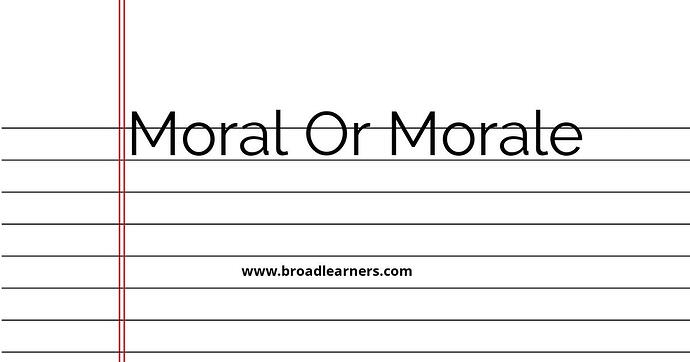'Moral' and 'morale' are commonly confused words in English grammar. Understanding the difference between 'moral' and 'morale' is important to use them correctly in written and spoken English.
'Moral' is an adjective that relates to principles of right and wrong behavior, ethics, or values. It is used to describe or judge the ethical quality of someone's actions or decisions.
'Morale' is a noun that refers to the confidence, enthusiasm, and discipline of a person or a group of people in relation to their tasks or goals.
Let's take a closer look at the meanings and usage of 'moral' and 'morale'.
| 'Moral' | 'Morale' |
|---|---|
| The word 'moral' is an adjective that describes principles of right and wrong behavior. | The word 'morale' is a noun that refers to the confidence and enthusiasm of a person or a group of people. |
|
|
To remember the difference between 'moral' and 'morale', it can be helpful to remember that 'moral' is an adjective related to ethics and right and wrong behavior, while 'morale' is a noun related to confidence and enthusiasm.
Here are some examples of correct usage:
- She always tries to make morally sound decisions. (referring to ethical decisions)
- The company's morale improved after the successful project. (describing the confidence and enthusiasm of the employees)
- It's important to have high morale in a team to achieve success. (referring to the motivation and spirit of the team)
- His actions go against moral principles. (referring to ethical principles)
Remembering the correct usage of 'moral' and 'morale' will improve your grammar and communication skills.
